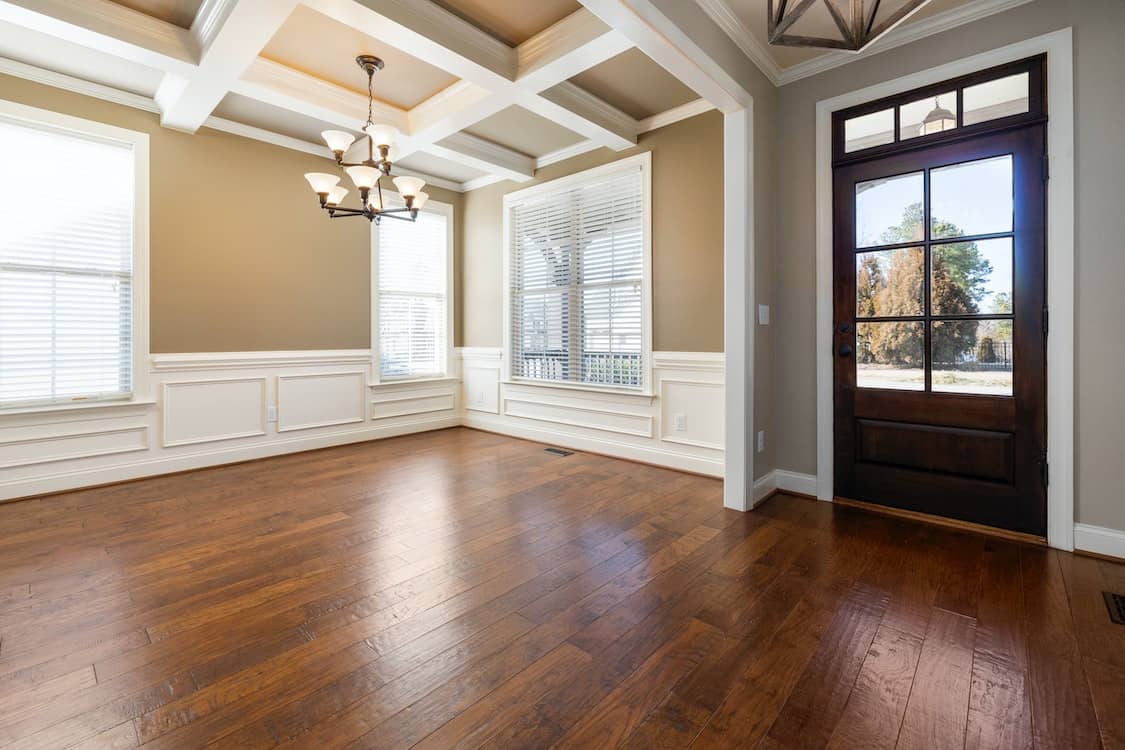When you’re replacing an old floor, you may want a surface that’s easy to clean and maintain. You may also want a surface that’s attractive and durable. Epoxy floors will meet these needs. If you’re considering this type of flooring for your home, read on for more information. If you’re interested in installing epoxy floors yourself, read on to learn more.
Installing epoxy flooring yourself

Before you begin, you should ensure that your concrete is properly prepared. You can do this by using a power sander or chemical stripper to remove old sealers. Once you have cleaned the surface and have repaired any cracks, you can apply epoxy. If you don’t have any experience with flooring, you may want to seek professional advice on this project.
You can also buy an epoxy flooring kit that includes all the supplies you need. However, you should note that these kits may not be as high-quality as the coating that a professional can apply. Furthermore, you will likely not have the tools needed to complete the job properly. This is because the products and tools in DIY epoxy flooring kits are usually insufficient for a professional-quality job.
If you choose to do this project yourself, be sure to use a good quality roller. Cheap rollers tend to shed and can damage the application. Also, be sure to use a suitable sealant to protect the surface from fading and deterioration. Finally, make sure to re-coat the floor after 24 hours.
You can spread the primer coat out thin, but this will reduce the durability of the floor and make the floor look less glossy. If you have a porous floor, you may need to apply a second coat. After a few hours, you can begin applying the color coat. It should be thinly applied as the previous one might soak up more primer. As you spread the color coat, be sure to allow it to dry.
You can also choose to have a professional install the epoxy flooring in your garage. This may seem more expensive than doing it yourself, but it comes with numerous benefits. A professional installation can cost from $3 to $12 per square foot and will include all materials and labor. The cost may also vary depending on the type of existing flooring.
Types of epoxy flooring
There are several types of epoxy flooring available. They differ in their thickness and are suited for different applications. Some systems are self-cleaning and can withstand high traffic. Others use quartz sand to ensure a smooth and even surface. These floors are generally used in garages, basements, kitchens, bathrooms, and family rooms. However, they can also be used in other rooms.
Another type of epoxy flooring is moisture barrier epoxy. This type of flooring is commonly used in areas with a high level of humidity. It provides a moisture barrier and is waterproof. It is typically applied before the final flooring option. These coatings are one of the most common types of epoxy flooring. They are ideal for indoor and outdoor settings.
Epoxy flooring is made of a resin mixed with quartz grains. This type of flooring is extremely durable and can handle a significant amount of impact. This material is especially effective for commercial spaces, where people move heavy objects and machinery. Epoxy flooring also helps prevent slipping and is relatively low maintenance. There are three main types of epoxy flooring: self-dispersing epoxy, self-levelling epoxy, and mortar epoxy.
Flake flooring is another type of epoxy flooring. These floors can be used in industrial settings and are made of different layers of the resin. Some of these layers are coated with vinyl flakes for better traction. These flakes can also serve as a decorative surface. Some of these floors can be made waterproof by using a vapor barrier.
Mortar epoxy is one of the strongest types of epoxy flooring. Made from 100% epoxy resin and graded or quartz sand, this material is durable and resistant to impact. It is ideal for areas with heavy machinery because it is very resistant to abrasion. Additionally, it is resistant to chemicals.
Cost of epoxy flooring
The cost of epoxy flooring is generally determined by two factors: materials and installation. A gallon of epoxy can range from $30 to $150, depending on its composition. If you need a large amount of epoxy for a large project, it may be best to contact a professional installation service provider. The final cost will depend on the scope of the work, including the time it takes to complete the installation.
You can get an estimate for epoxy flooring by discussing the design with a contractor. There are excellent services that offer installation of epoxy flooring in the Chicago Area. This will help you get a general idea of how much the whole project will cost. This way, you can decide whether to spend more or less money. However, it’s important to keep in mind that the materials themselves can be expensive, so you should budget more than you think you’ll need.
Another important consideration is the type of floor you want. If you want a floor that is highly resistant to scratch and stains, epoxy may be a good option. This flooring is extremely durable, and is suitable for both industrial and commercial buildings. It is particularly suited for food and beverage processing plants, laboratories, and pharmaceutical manufacturing facilities.
There are several different types of epoxy flooring. Some are very thin – thinner than the paint you’d use for an ordinary floor – and others are thicker. Thicker systems require more layers of product and are therefore more expensive than thinner ones. Thicker systems, such as those designed for industrial use, require a deeper floor.
Once you’ve chosen the type of epoxy floor coating, you’ll need to determine how much you’d like to spend. This will determine how much epoxy flooring you’ll need, and the amount of labor required. The more epoxy you have to apply, the more you’ll have to pay for the finished product.
Chemical resistance of epoxy flooring
Chemical resistance is one of the key benefits of epoxy flooring. This type of flooring has a high level of resistance to chemicals, which makes it ideal for industrial and residential applications. The chemical resistance of epoxy is attributed to its unique structure, which makes it difficult for chemicals to penetrate it. It also features a high degree of cross-linking, which means that it can resist even the most aggressive of substances.
The chemical resistance of epoxy flooring depends on the type and concentration of the chemicals used. There are different classes of chemical resistance, and it is important to choose the right one for the particular application. It is also important to consider the frequency of spills and immersions and the amount of time that chemicals are allowed to remain on the flooring.
Two-component epoxy systems are thermoset polymers that comprise a crosslinked network. Their properties depend on the resin and diluent, as well as the additives. For example, their resistance to acids and solvents varies depending on the composition of the two components. These materials also have good adhesion to the substrate and are non-contaminating.
Epoxy floor coating is one of the strongest flooring options available. It is extremely durable when installed correctly, and can withstand high wear and tear without cracking. Epoxy flooring also offers aesthetic appeal. Despite its strength, it is important to find an experienced professional to perform the installation. A properly prepared foundation is essential to a successful epoxy flooring application. If the foundation is not clean and smooth, the floor will lose its structural integrity and may be compromised.
Chemical-resistant flooring is an excellent option for many industrial applications. These floors are highly durable and can save a business a significant amount of money in the long run by not having to replace the flooring.
Safety concerns of epoxy flooring
While epoxy flooring is an attractive option for garages and basements, there are some safety concerns associated with it. While it may appear to be slippery underfoot, it’s actually more comfortable than traditional flooring. If you’re concerned about the safety of epoxy, it’s best to contact a professional before beginning the project.
One of the main safety concerns is the risk of slipping. While epoxy floors are relatively slip resistant, oil-covered epoxy can be slippery when wet. For this reason, it’s not recommended for areas prone to spills or water. However, the addition of a texturizing agent to the epoxy may help mitigate the risk of slippage. However, even the best flooring cannot completely eliminate all slip and fall hazards.
Other safety concerns include potential health hazards. For example, the chemical used in traditional epoxy flooring can be toxic to workers and the public. For these reasons, the flooring should only be installed by professionals. In addition, it’s recommended that you consult a professional contractor to ensure that the floor will be moisture-resistant. This can prevent the likelihood of delamination.
Another concern is the labor required to apply epoxy. Proper installation is essential to avoid hazards. This process requires special chemicals and equipment. Whether a professional or a novice, you should be aware of all of the risks associated with using an epoxy floor. You should also consult a professional if you’re unsure of how to install an epoxy floor.
Despite the fact that epoxy floors are durable, the flooring material will eventually need to be replaced. Unless the material is tempered, the floor will need to be re-applied periodically.

